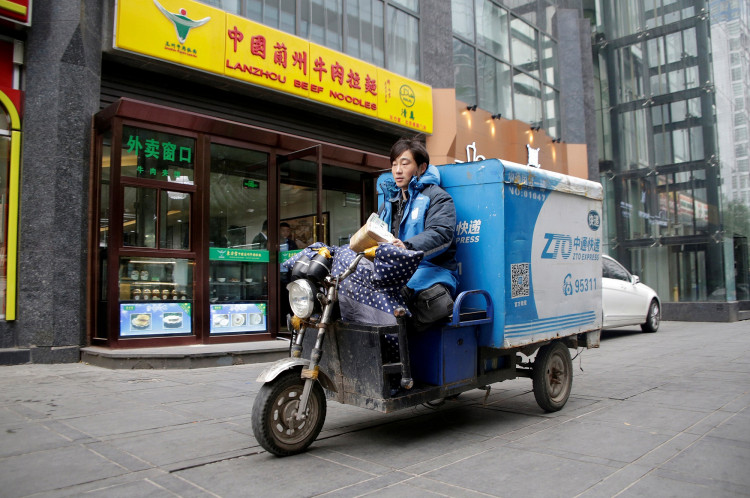New York-listed China delivery company ZTO Express wants to raise up to HK$12.1 billion ($1.6 billion) in a secondary listing in Hong Kong later in September. The company, which provides shipping for Alibaba, Group Holding Ltd., said it planned to sell 45 million new class A ordinary shares. Around 2.25 million shares will be placed under its Hong Kong offering while 42.75 million shares will be offered worldwide.
According to a prospectus filed with the U.S. Securities and Exchange Commission, ZTO Express plans to price its Hong Kong shares at a maximum of HK$268 a share. This represents a 10% premium of the company's last closing share price of $31.37 per American depositary share in New York.
ZTO Express is expected to announce its final pricing Sept. 22. Its shares will begin trading in Hong Kong Sept. 29.
An over-allotment option is available - allowing the listing's underwriters to sell an additional 6.75 million shares. ZTO Express plans to spend the proceeds of the share sale on its operations and network.
"This is a key milestone for ZTO," founder, chief executive officer and chairperson Lai Meisong said in a statement. "Motivated by our shared-success philosophy ZTO has built an efficient operating platform and a stable partner network," Lai said. "We will continue our effort toward our mission of bringing happiness to more people through our services and become a world-leading comprehensive logistics service provider."
ZTO Express is the latest U.S.-listed China company to launch a secondary listing - even as tensions between China and the U.S. escalate. The move to list closer to home follows similar listings by U.S.-listed China companies NetEase, JD.com and Yum China. Combined the three companies raised around $10 billion.
China-U.S. relations have led to disagreements in the finance sector. Last month, U.S. regulators proposed measures that would require China and other foreign companies to submit to extensive audits before listing in the country's exchanges. Companies that are already listed and fail to comply may be delisted.
Hong Kong has benefited from the dispute as big China companies chose to launch secondary listings in the city. This included planned high-profile listings such as the dual initial public offering of Alibaba's Ant Group subsidiary.





